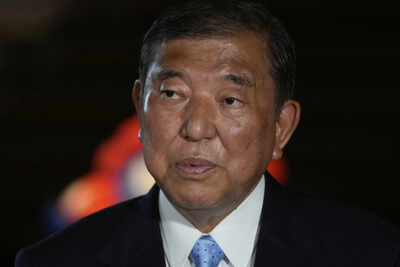
Japanese Prime Minister Shigeru Ishiba’s ruling coalition has failed to retain its majority in the upper house of parliament, giving another significant blow to his government and fuelling further political uncertainty.According to public broadcaster NHK, the Liberal Democratic Party (LDP) and its junior partner Komeito fell short in Monday’s pivotal election, securing only 47 seats with one still to be declared, three seats short of the 50 they needed to maintain control. The coalition, which already held 75 seats in the 248-member upper house, required 50 more to retain a simple majority of 125. Instead, it now finds itself a minority in both houses of parliament, following a similar loss in the lower house in October.
It is the first time since the LDP’s founding in 1955 that the party has lost its majority in both chambers. Despite the poor showing, Ishiba signalled his intention to stay on, warning that stepping down would create a political vacuum at a time when Japan faces serious challenges, including tariff threats from the United States. “I will fulfill my responsibility as head of the No. 1 party and work for the country,” Ishiba said in a live interview with NHK, while admitting, “It's a tough situation.
I take it humbly and sincerely.” The LDP, while still the largest party in the Diet, won just 39 seats, slightly better than the 32 projected by exit polls but still a disappointing result. Ishiba had hoped for a minimal victory, setting the benchmark at a simple majority, but acknowledged that the government’s efforts to contain rising prices had not yet made an impact on many citizens. The election result does not pose an immediate threat to Ishiba’s premiership, as the upper house cannot table a no-confidence vote.
However, it significantly weakens his political position and could spark internal calls for him to resign or forge a new coalition, AP reported. Public frustration has been mounting amid soaring prices, stagnant wages and high social security costs. Economic dissatisfaction dominated voter concerns, alongside growing scrutiny of the government’s tougher stance on foreign residents and visitors. A resurgent right-wing populist party also made gains during the campaign, further complicating the political landscape. Sunday’s vote followed the coalition’s earlier defeat in the lower house elections, which was blamed on past corruption scandals and the administration’s failure to quickly address economic pressures. As a result, Ishiba’s government has been forced into repeated concessions with the opposition to push legislation through the Diet.Economic angerFrustrated by rising prices, low wages, and heavy social security costs, voters turned against Prime Minister Shigeru Ishiba’s coalition in the upper house election.
The government lost support for failing to reduce living costs, especially for basics like rice, and for its stricter immigration policies that sparked public debate.Weak coalition Sunday’s upper house vote followed the ruling coalition’s loss of a majority in the October lower house election. Prime Minister Shigeru Ishiba’s administration, already tainted by past corruption scandals, has since had to rely on opposition support to pass legislation.
The failure to implement effective economic relief only intensified public dissatisfaction.Further complicating the government’s troubles, US President Donald Trump criticised the lack of progress in trade talks. Washington has expressed frustration over Japan’s limited imports of American vehicles and rice, despite a domestic shortage of the staple grain. A looming 25% US tariff, set to take effect on 1 August, adds another layer of pressure on Ishiba, who had resisted compromise ahead of the election.
With his coalition now in the minority, the likelihood of a breakthrough remains slim.Voters turn to other partiesVoters increasingly turned to new populist forces. While Japan’s eight main opposition parties failed to unify under a common agenda, emerging groups made strong gains. The right-wing Sanseito party, known for its hardline anti-foreigner stance and “Japanese First” platform, surged from one to 14 seats. Their agenda includes anti-vaccine, anti-globalism rhetoric and support for traditional gender roles. The conservative Democratic Party for the People (DPP) also saw a significant rise, increasing its seat count from four to 17. DPP leader Yuichiro Tamaki said voters backed them “as a new alternative”. Meanwhile, the centrist Constitutional Democratic Party of Japan (CDPJ) lagged behind.

 12 hours ago
2
12 hours ago
2










 English (US) ·
English (US) ·